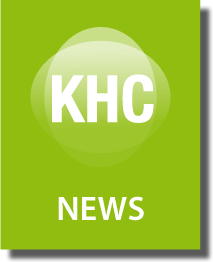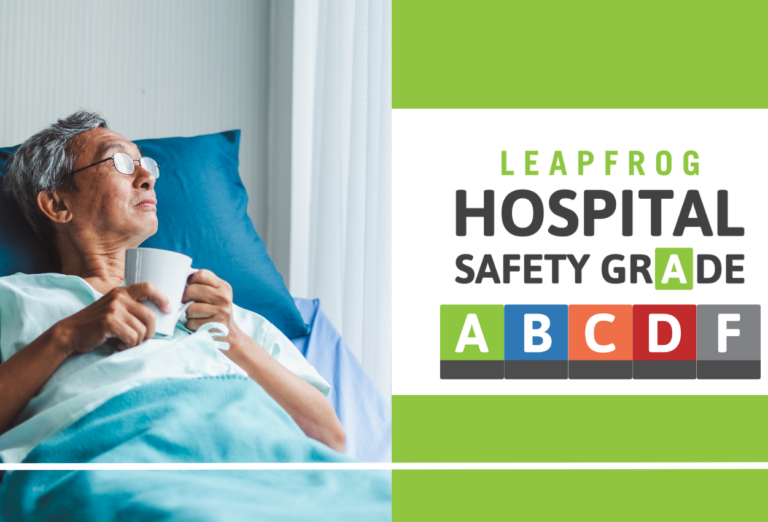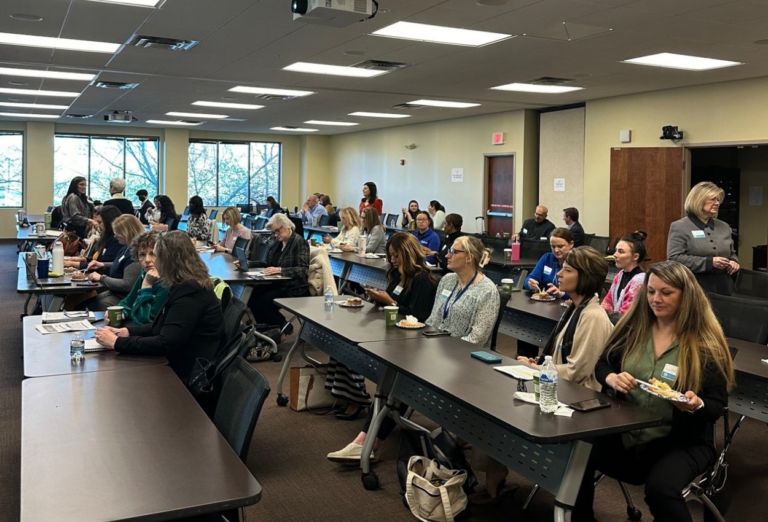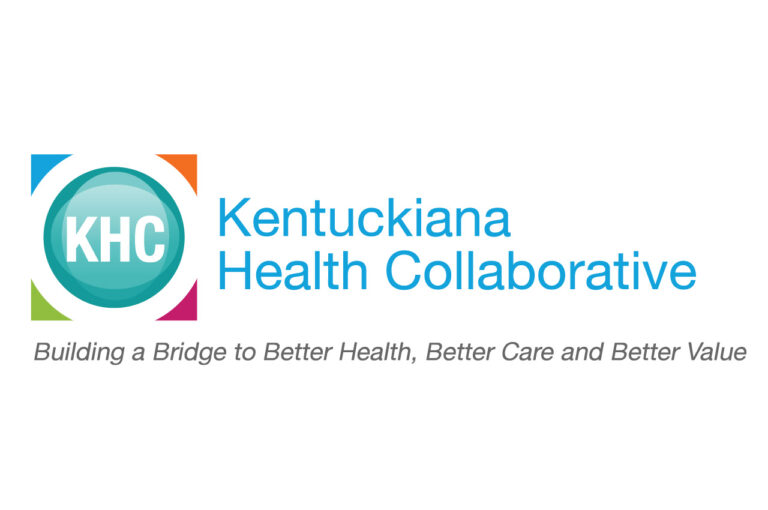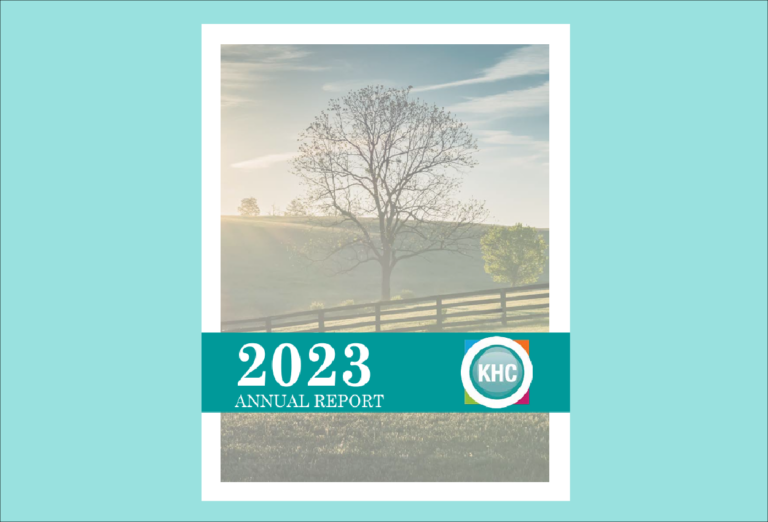The Kentuckiana Health Collaborative’s new Executive Committee (EC) structure began in January of 2017. This new board, double in size compared to the previous KHC leadership team, represents a broader perspective of key community stakeholders, and they quickly reached consensus on what they felt the KHC’s 2017 priority should be: to define, standardize, and align key community metrics. This set a clear direction for the KHC team.
 With this priority in mind, the KHC began discussions and then ultimately partnered with the Kentucky Department for Medicaid Services (KDMS) to create a core healthcare measures set for Kentucky’s primary care providers that align the priorities of Medicare, Medicaid, and commercial insurers. The goals of the core healthcare measurement set are to establish broadly agreed upon priority measures that improve the quality and value of care, reduce provider reporting complexity, and align Kentucky’s healthcare organizations on shared areas of focus. The KHC and KDMS have selected more than 70 experts across Kentucky to form a Performance Measures Alignment Committee (PMAC) and four subcommittees on Pediatric Care, Behavioral Health, Preventive Care, and Chronic and Acute Care. Stephanie Clouser is leading this work, which is already in progress and is expected to be completed in August of 2018.
With this priority in mind, the KHC began discussions and then ultimately partnered with the Kentucky Department for Medicaid Services (KDMS) to create a core healthcare measures set for Kentucky’s primary care providers that align the priorities of Medicare, Medicaid, and commercial insurers. The goals of the core healthcare measurement set are to establish broadly agreed upon priority measures that improve the quality and value of care, reduce provider reporting complexity, and align Kentucky’s healthcare organizations on shared areas of focus. The KHC and KDMS have selected more than 70 experts across Kentucky to form a Performance Measures Alignment Committee (PMAC) and four subcommittees on Pediatric Care, Behavioral Health, Preventive Care, and Chronic and Acute Care. Stephanie Clouser is leading this work, which is already in progress and is expected to be completed in August of 2018.
Another big change in 2017 was the formation of a new measurement strategy team to help guide the KHC’s signature and most resource-intense work, the annual healthcare quality reports. In 2017, the KHC calculated and distributed Consolidated Measurement reports on 23 quality indicators to nearly 400 group practices and more than 4,000 primary care providers in Kentucky and Southern Indiana from aggregated quality data provided by Anthem, Humana, Passport, and WellCare. This was the first year that group practices outside of Greater Louisville received reports and was made possible through a grant from the Kentucky Department of Public Health to improve colorectal cancer screening rates. For the first time, all 100 percent of eligible groups in Greater Louisville voluntarily agreed to share their quality data with the public at GoHealthShare.org. Additionally, the KHC documented current reporting methodology to transition the 2017 fall reporting work to our newly selected analytics vendor, Northern Kentucky University. This transition was critical to free up time for the PMAC project.
Our first newsletter was launched in 2017 to improve communication with the community on KHC and partner work. The team has written more than 40 blog posts and spotlighted 10 of its members in just one year. We have also hosted content from local and national thought leaders on the site. The newsletter surprisingly outperformed expected readership, and we plan to continue the newsletter in 2018.
We held three informative community health forums titled “Healthcare Measurement in Action,” “The Rise of Worksite Health Centers to Address the Unmet Health Needs of Employees,” and “Improving Health through Literacy.” We hosted two employer round tables on “Trends in Benefit Design & Specialty Drug Management” and “The Staggering Impact of Depression on a Company’s Bottom Line and Resources for Employers to Tackle This Growing Health Challenge.” We also hosted a small employer focus group with research and consulting organization Altarum on “The Medical Episode Spending Allowance Plan: A New Value-Based Insurance Design.”
Our third annual conference brought together national and local thought leaders to discuss “The 2017 Healthcare Question: What’s Coming, What’s Going?” to explore measurement, data, and payment innovation; cultural competency; and the game changers expected over the next few years. The conference had a great lineup of speakers with high evaluation scores but fell short of financial or participation goals. As a result, the KHC EC decided that the focus needed to be narrowed and identified mental health and substance use disorder as the topic for the 2018 annual conference. Most of the speakers are already confirmed for this event, and registration is now open. Be sure to join us on March 14, 2018 to learn the latest evidenced-based approaches, best practices, and successful models of addressing mental health issues and substance use disorders (SUD).
Mental health and SUD became a new area of focus, when the KHC members agreed that the annual conference should not be a one-day event but rather a kickoff to meaningful community work. The KHC team spent a great deal of time meeting with experts in the field and developed a plan for work in this area. Based on these plans, the KHC received a grant from GE Appliances, a Haier company and has already hired a part-time research assistant for work on this project. In addition, Stephanie Clouser was selected to represent the KHC on the National Quality Forum’s Opioid Stewardship Action Team. The KHC is also hopeful to announce another grant on this topic in the near future.
From an organizational perspective, the KHC facilitated 24 committee meetings in 2017 and added six new members for a total of 50 organizational members. The Collaborative maintained membership with the Network for Regional Healthcare Improvement (NRHI) and sent three members to the Affordability Summit. The KHC also maintained membership with the National Alliance for Healthcare Purchasers Coalitions (NAHPC). In addition to national memberships, the KHC team participated in other local community coalitions that align to its work, such as the Louisville Metro Public Health and Wellness Opioid Action Planning team, Center for Nonprofit Excellence, and the Louisville Health Advisory Board.
It was exciting to move back into more project work in 2017, and none of it would be possible without the dedicated members of the KHC. As we look to 2018, we are excited about what progress we can make together for the good of our communities.
